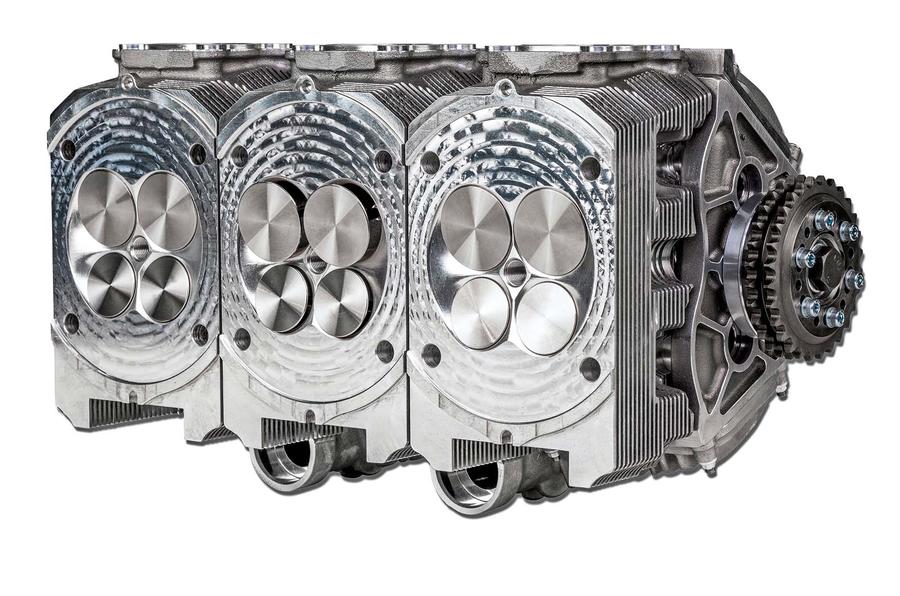Swindon Powertrain, the innovative producer of everything from Hyundai’s championship-winning BTCC engines to its own E-Classic electrified Mini, has come up with a four-valve cylinder head upgrade for air-cooled Porsche engines.
Specifically, the M64 Cylinder Head Kit is designed to fit and be completely compatible with the M64 engine, which graces the 964- and 993-generation 911s.
Having two inlet and two exhaust valves rather than one of each increases valve seat area, allowing more air into the engine at higher revs without compromising the speed of air entering, and exhaust leaving at low revs.
What that means for a naturally aspirated engine is good torque at low revs with the ability to rev higher and therefore develop much more power at the top end.
Swindon’s new heads open up the breathing of the Porsche engine such that it could rev to 12,000rpm, assuming the bottom end is built to withstand that. It’s a huge leap from the 993’s 6900rpm redline, the heads improving peak inlet air gas flow by 40% and exhaust gas flow by 66%.
Swindon boss Raphaël Caillé says the engine could produce as much as 125bhp per litre with the new set-up, depending on the build. Although Swindon isn’t making any specific power claims, that would equate to between 400bhp and 450bhp as opposed to the standard M64 engine’s 268bhp.
The production 964 and 993 Porsches originally had single-cam, two-valve-per-cylinder heads, so squeezing four valves and two camshafts into the same space, as well as figuring out how to drive two cams as opposed to one, proved quite the challenge.
The solution was to drive the exhaust cam from the inlet cam with a pair of gears, which meant the original production camshaft drive chain, its casing and all the related bits and pieces remain standard, with no modifications required.
The heads are cast from A356 aerospace-grade aluminium alloy and then CNC-machined along with the cam chests. Swindon can also supply a power steering drive to enable the 993’s power steering to be retained, bespoke pistons designed to work with the four-valve pattern and custom cam profiles to suit an engine builder’s preference.
Another advantage of the four-valve design is that the smaller valves weigh less and use lighter valve springs than the two-valve heads, reducing loads on the valve train.
The overall package is lighter too. Both inlet and exhaust valves are made from titanium, as are all the small parts like valve collets, shims, finger followers and shafts. The result is a 3.5kg reduction over the complete set of heads, relative to standard.





Join the debate
Add your comment
Service intervals? How far between rebuilds?